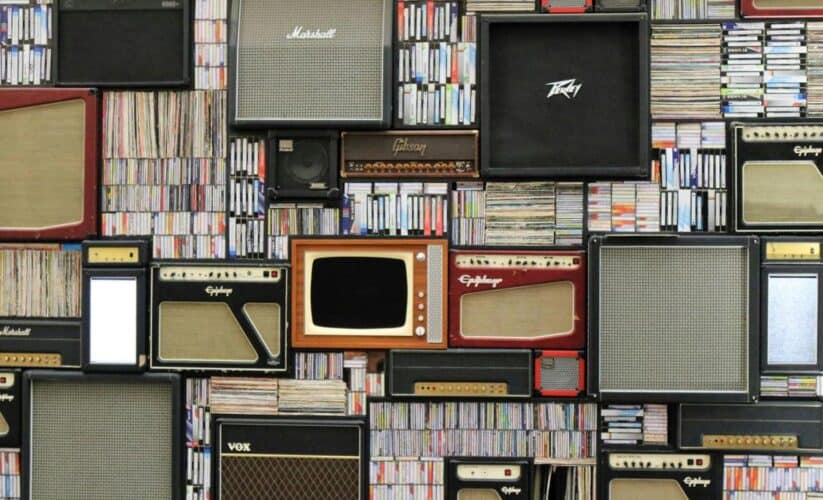
How to Preserve Analog Memories? Explained Here
Preserving analog memories means protecting physical copies from deterioration and making them easier to access. One way to do that is by digitizing them.
From old VHS tapes to LP records, snap shots to 8 millimeter films, digital preservation makes your media more easily accessible. Here’s how to do it.
Store Your Memories in a Safe Place
Analog media can become damaged over time, whether it’s the result of physical wear and tear or environmental factors. A fire, flood, or even a leaky attic can cause damage to your memories in a matter of seconds. And while some of these types of damages may be irreversible, storing your analog media in a safe place can help to reduce the risk of them being lost or destroyed — one way being through a copy old tapes to digital media.
A good place to store your analog media is in a sealed box with a protective cover. While this will not prevent your media from becoming damaged, it will protect them from dust, dirt, and moisture. You should also avoid exposing your analog media to extreme heat or cold, as this can lead to warping and shrinking.
Another way to keep your analog memories safe is to digitize them. While this will not protect your media from being damaged, it will make it easier to access and view your memories over time. Unlike physical photos and home movies, digital files can be viewed on a variety of devices, including smartphones, tablets, and computers. In addition, digital files can be easily stored on a hard drive or cloud storage service.
Lastly, digitizing your analog media can save you time and money in the long run. By converting your analog media to digital format, you can avoid the hassle and expense of purchasing new equipment to play your old home movies or photographs. In addition, you can save yourself the cost of having to repair or replace broken analog media.
Preserving your memories in a digital form is an easy and convenient way to enjoy them, and it also provides a great opportunity to share them with family members who may not have the physical copies. There are a number of online services that can help you preserve your memories in a beautiful and visually appealing way, such as creating a personalized photo book or video documentary.
Finally, preserving your analog memories in digital format can also save you space and reduce clutter in your home. Boxes of books, VHS tapes, and other mementos can take up a lot of space in your home. By transferring these memories to digital format, you can free up a lot of space and still have easy access to your favorite childhood memories.
Keep Them Organized

Keeping physical mementos organized is important for preserving them. Keeping all your photos and documents in one place will make it easy to find them, and organizing them by subject matter or chronologically can help you tell the story of your family history. You can keep your mementos in binders, folders, boxes and even old school photo albums.
You also want to keep your analog media away from the elements as much as possible. Putting them in the attic or basement can cause water damage or a fire, so it’s best to keep them on your main floor. Similarly, storing them outside or in a shed can cause film to become brittle from exposure to cold air.
It’s also a good idea to back up your analog media digitally so that you can avoid losing them in the event of data loss or hardware failure. Cloud storage services are a great option for backing up your files. You can also use external hard drives to store your backups, but be sure to label them properly and update them regularly.
Analog media has a finite lifespan, so it’s important to preserve it as long as possible. Whether it’s VHS tapes, Mini DV or Hi8 tapes, or photos, negatives and slides, all of them are susceptible to deterioration and degradation over time. Their magnetic particles can flake off, leading to distortion or even a loss of content. Their dyes can fade or discolor, and their print quality can degrade to illegibility.
The process of analogue media digitisation is a vital step in safeguarding reminiscences and cultural history for destiny generations. Whether it’s antique circles of relatives photographs, vintage home movies or cherished vinyl records, the system of analogue media digitisation gives a practical solution to retaining these treasured items for the years to come.
Don’t Let Them Get Damaged
The physical limitations of analog media present a host of challenges to preservation. They are difficult to copy or share, and they degrade over time, becoming brittle or fading until they become unreadable. These limitations have forced families to divvy up one-of-a-kind mementos, leading to scattered collections that are often lost or forgotten. Digital formats, however, offer a solution to these problems. Digital content can be backed up indefinitely, copied and shared easily, and does not degrade over time. In addition, digital media can be stored on devices that are compatible with today’s standards.
But even though digitizing offers a lifeboat for your analog memories, it is important to take steps to ensure that your media is protected from damage and degradation in the meantime. One of the best ways to do this is to keep your media out of the elements. Winter weather, with its dry air and cold temperatures, can be especially damaging to analog media. If you have any film, tapes, or photos stored outdoors, bring them indoors immediately.
Another way to protect your analog media is to avoid mishandling them. Using low-quality equipment to transfer your media can lead to irreparable damage, resulting in a loss of quality that will affect how you view and listen to your memories.
If you haven’t yet digitized your analog media, consider doing so as soon as possible. This will not only make your memories easier to access and share, but it will also provide a safeguard against physical degradation. In addition, digitizing your analog media will make it more compatible with modern technologies, ensuring that your precious memories will remain accessible as the world around them evolves.
Digitize Your Collection
Many people have analog photos and videos stored in boxes somewhere, gathering dust. These priceless memories are slowly degrading and losing quality. However, they could be easily preserved and accessed if they were digitized. Moreover, digital media is more resilient to natural disasters and other factors that may damage your analog memories.
To digitize your analog memories, you will need the right equipment and knowledge. You will also need to have a clear plan of action and set aside enough time to complete the task. The process can be very time-consuming, especially if you have multiple analog tapes to convert or many photographs to scan.
Before digitizing, you should clean your analog media to remove any dirt or debris that may affect the quality of the digital transfer. You should also use the highest quality settings available on your equipment. This will result in larger file sizes, but it’s worth the extra effort to preserve your memories for as long as possible.
Once your analog media has been digitized, you should make multiple copies of it and store them in different locations. This will ensure that you have backups in case one of your digitized files becomes damaged or lost. Additionally, you should keep the original media in good condition, as it can be used as a reference point if any issues arise with your digitized copies.
If you don’t feel comfortable digitizing your analog memories on your own, there are services that can help. Legacybox offers a convenient service that can digitize all types of analog media and photos. They will send you a crush-proof box with a prepaid shipping label, and within a few weeks, you’ll receive your digitized files and your originals back.
While it may be tempting to just throw away your old film reels, photo albums, and tapes, remember that they are holding memories that you want to hold on to forever. Whether your analog media was saved from a house fire, a flood, or just sitting in the attic, it’s important to take steps to preserve it before it’s too late.





